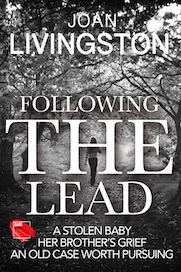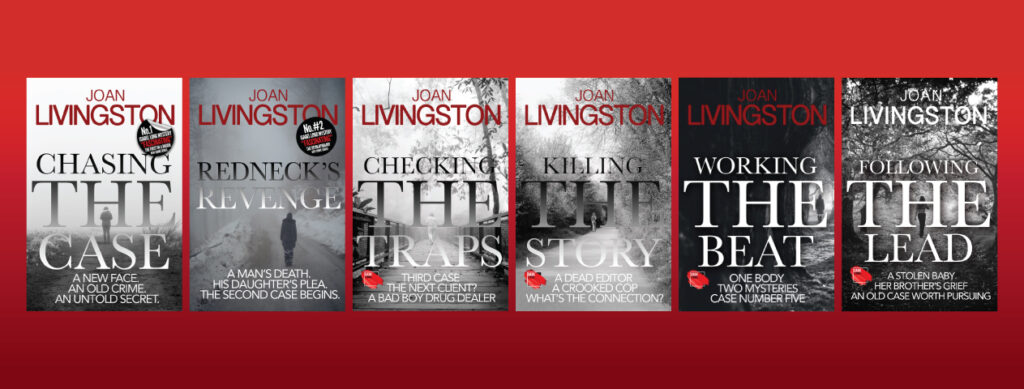This time, it’s a literary agent in Missing the Deadline, my latest Isabel Long Mystery. Well, it makes sense to choose one given the past year I spent querying agents about a book I pitched.
Missing the Deadline is the seventh book in my series. In my other books, the victims included: a woman who worked in a general store; a junkyard owner; a highway worker who wrote poetry on the side; owner of a small newspaper; a beloved grandson. In Following the Lead, no. 6, that case involved the disappearance of a child many years earlier.
So let me tell you about Gerald Danielson. He is a hotshot literary agent from New York City who moved to a small hilltown village called Meadows Falls — well, he used to be until he got shot in the head and nearly died. His sister found him on the bench behind their home.
Due to the way the bullet traveled through his brain and its velocity, Gerald survived but he’s not the same. Police ruled it an attempted suicide, especially since Gerald couldn’t remember what happened when the bullet hit him. His sister, who has taken over the literary agency, doesn’t like for him to try recalling what happened before because it gets him so upset.
Cyrus Nilsson, the noted poet whose first agent was Gerald, has his doubts. So, he hires Isabel to investigate. (You might remember Cyrus was a suspect in the third book.)
And as Isabel — with the help of her 93-year-old mother, Maria, her ‘Watson’ — pursues this case, she finds likely suspects: a vindictive ex-wife, a jilted local writer, and even an apparently devoted sister who lives with him. There are more.
(Full disclosure: I have had two agents in the past, but we parted ways amicably when they couldn’t sell my books.)
This is also an opportunity for Isabel to dig into the publishing industry to better understand people’s motives. Frustrated writers will give this short scene a nod.
I hear the bathroom door open and Ma’s footsteps in the hallway. She gives me a nod as she heads to the counter. She pushes down the toaster’s lever.
“Are you doing that Google thing?” she asks over her shoulder.
“Uh-huh, I’m reading the agency’s website.” I give a small snort. “I’m on the submissions page. It says authors have to email a query letter, synopsis, and the first ten pages. The response time is up to four months. It says if you don’t hear from them by then, they’re not interested.”
My mother goes to the fridge for milk and jam.
“That’s a long time to wait and get nothing.”
I nod.
“I guess that’s how it works in that business. Sounds like you’d have a better chance of winning the lottery.”
Yes, indeed.
For this case, Isabel has a few chance encounters with Gerald, who she likes. He has a constant aide, Miguel. Plus there’s his cat. One of Gerald’s favorite occupations is sitting on the bench, yes, the same one, that overlooks a deep river valley. He still helps his sister, Wendy, with queries, giving advice on whether a book is worth representing. Gerald will sometimes mix up words.
I enjoyed creating the scenes involving Isabel and Gerald, especially the crucial one toward the end — my lips are sealed on that one.
To make this character’s situation authentic, I relied on Bob Manners, a longtime paramedic who lives in my village of Shelburne Falls. We had two interesting conversations about trauma. Also, I have met two people who had similar shooting experiences.
Here’s another scene from Missing the Deadline. Isabel and her mother are having lunch with author Lyle Baxter, a person of interest, at the Loose Goose in Meadows Falls, when Gerald and his aide unexpectedly come to eat. Lyle introduces Isabel.
I automatically stretch my hand toward Gerald for a shake. I did it all the time when I was a journalist meeting somebody for the first time although hardly as a private investigator dealing mostly with country folk who might think it odd, especially coming from a woman, but it is definitely a natural reflex. Gerald’s hand swings forward to meet mine.
“Nice to meet you, Gerald,” I tell him. “I’ve met your sister, Wendy. I was at your house the other day.”
Gerald smiles as his hand folds firmly around mine. The skin is warm and soft. The handshake seems like an automatic response for him as well. I imagine him doing it with clients and publishers when he was active in his agency. But it doesn’t appear this greeting is going to end any time soon. I wiggle my hand a little as a sign for him to let go, but Gerald continues his hold. He keeps that smile going. I have his full attention.
“You know me?” he asks.
“No, we just met,” I tell him, smiling back. “How are you today?”
“Ask Miguel. He knows.”
I am unsure what to say next, but Miguel makes a soft chuckle.
“You’re just doing fine today, Gerald,” he says. “Right?”
I note the scar near the temple area on the right side of his head, and I suppose if he turned, I would see the one for his exit wound. Gerald makes a slight grunt and continues to hold my hand. It is a firm but friendly grip, as if we could be walking together hand in hand.
“Nice baby,” he says. “I’m having pie.”
Miguel bends his head forward.
“Gerald, you can let go of the lady’s hand now.” Miguel lips are pressed as he looks at me, and then he says, “Sorry, he can’t help it. He mixes up words.” I give him an understanding nod, before he’s back with Gerald. “Yes, she’s a nice lady. Come on, Gerald. She needs to go.” His voice is kind but firm. “Look. Gloria’s bringing your pie. That’s why we came. Remember?”
Gerald’s fingers lose their grip oh so very slowly. Lyle promises a visit very soon, but Gerald keeps his eyes on me as the waitress sets the plate with a generous piece of apple pie and a scoop of vanilla ice cream in front of him.
“You know me?” he asks again.
“I do now, Gerald. My name is Isabel Long. Maybe I can visit you some day.”
“Izzie,” Gerald says, and I decide that he is the only person I will let call me that.
“Yes, Izzie,” I say.
In case you’re wondering about the book I pitched … The Swanson Shuffle was inspired by my experience living and working in a psychiatric halfway house during the time Massachusetts was closing down its state mental hospitals. And, no, I didn’t find an agent or publishing house interested in representing it. Too bad. I feel it’s the best book I’ve written.
Finally, Missing the Deadline will be released Dec. 21 in Kindle on Amazon. (Paperback readers will have to wait a few months.) Until then it’s in the preorder phase. The price: $3.99. I’m touched by those who have preordered since it helps with ratings. So, thank you if you do.





